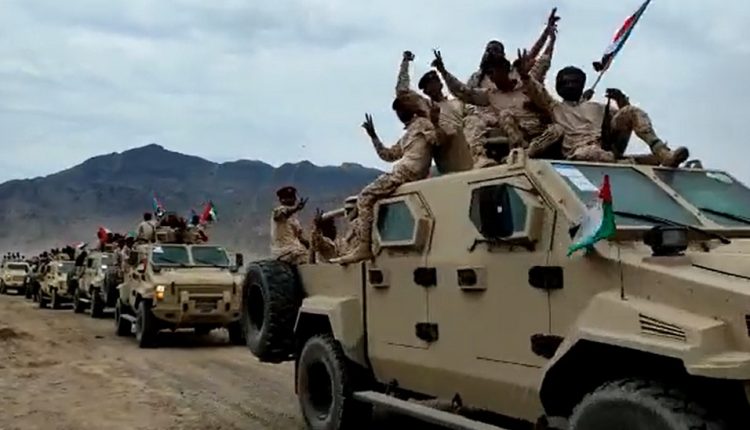UAE-Saudi rivalry over influence threatens to destabilize Yemen’s oil-rich Hadramout
SANAA, July 05 (YPA) – The head of the UAE-backed Transitional Council (STC) branch in Hadramout Valley, Mohammed Abdulmalik Al-Zubaidi, has issued threats to overrun areas controlled by the Saudi-aligned Hadramout Tribal Alliance.
In a video recording during a local meeting in Sayoun, a key city in Hadramout Valley, Al-Zubaidi stated that the STC has an army of 300,000 soldiers capable of halting the activities of the Tribal Alliance’s leader, Amr bin Habrish Al-Alii.
Last week, bin Habrish announced the formation of what he called the “First Brigade of Hadramout Protection Forces.” He criticized the Tribal Alliance leader as ignorant and vowed not to allow recruitment drives for the alliance in Hadramout.
Al-Zubaidi also hinted that the STC forces are close to the valley districts, asserting their ability to take control of these areas.
These threats arise in the context of a deepening UAE-Saudi rivalry over influence in Yemen, with local proxies—the STC and the Tribal Alliance—serving as tools in this conflict.
Tensions escalated after the Tribal Alliance, supported by Riyadh, declared “self-rule” in April following a year of tribal sit-ins demanding tangible partnerships and improved development services from the Saudi-led coalition through revenue generated by Hadramout’s natural resources.
Local observers warn that the escalating UAE-Saudi conflict through their local proxies could push the oil-rich province towards military chaos.
Over recent months, the UAE has reportedly transported thousands of STC fighters from Aden, Dhalea, and Lahj provinces into Hadramout.
Analysts predict a bloody confrontation between factions loyal to both sides over control of the region’s oil and mineral wealth. Amid these developments, Saudi Arabia views Hadramout as a critical strategic depth and is determined to prevent any UAE expansion into the valley and desert districts.
In response, Saudi Arabia has backed the Tribal Alliance leader in recruiting around 30,000 tribal youth for the “Hadramout Protection Forces” following his return from Riyadh and meetings with top Saudi officials, including Defense Minister Khalid bin Salman.
Since July 2024, Tribal Alliance militants have seized control over Hadramout Valley districts, including key oil facilities in Al-Masila. They have obstructed oil and mineral exports from Hadramout by establishing armed checkpoints that extend to coastal areas bordering Shabwa province.
This move has led to heightened tensions in UAE-controlled coastal areas like Mukalla, where newly erected armed posts by the alliance have created fears among the population. The escalation is seen as retaliation for UAE forces in Al-Rayyan airport forbidding the deployment of Saudi-backed “Dera Al-Watan” forces in Hadramout’s coastal areas.
Saudi troops stationed in Sayoun previously intervened to halt a military operation dubbed “Siham Al-Sharq operation,” launched by the UAE-backed STC in mid-August 2022. The goal had been to seize control of Islah Party-aligned camps located in “The First Military Region,” an endeavor coinciding with other UAE proxy victories over Islah positions in Shabwa and Abyan during that period.
YPA


